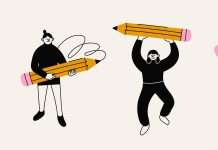 Is there a job interview on the horizon for you? Preparing for an interview ahead of time will help you ace the interview and land a job offer. There are a few things you can do before (and after) the interview to make a great first impression on your future employer.
Is there a job interview on the horizon for you? Preparing for an interview ahead of time will help you ace the interview and land a job offer. There are a few things you can do before (and after) the interview to make a great first impression on your future employer.
The Surest Way to Prepare for an Interview
Individuals spend up to 8 weeks investigating the company for their interview, according to a JDP survey. Many applicants (64%) conduct research about their recruiter. Because interviewing may be nerve-wracking, 70% of those questioned rehearse their replies publicly and 62% prepare stories to tell the recruiter.
Here are some interview preparation suggestions, including how to study the job and company, how to practice interview questions and answers, how to dress for the interview, how to follow up after the interview, and more.
Examine the Task
Taking the time to review the job posting, if one exists, is a vital component of interview preparation. Consider what the employer is looking for in a candidate as you go through the job description.
Make a list of the abilities, knowledge, and professional and personal traits that the employer requires and that are essential for employment success. Using online resources to perform better at interviews is also an option. For example there are a lot of react interview questions you can learn for your interview.
Make a Connection
Make a list of your assets and link them to the job requirements once you’ve outlined the qualifications for the job. You can also make a list of your skills that are relevant to the position. Skills, traits, certificates, experiences, professional qualifications, abilities, computer skills, and knowledge bases are all examples of these. When explaining to the employer why you are an outstanding fit for the job, you can bring up some of these strengths.
Consider instances from your previous job experiences to demonstrate that you possess these abilities. This way, you’ll be prepared if the interviewer asks you to recount an instance when you displayed a specific talent or aptitude. Prior to the interview, go over the job requirements, your list of skills, and your examples to make sure you’re ready to discuss them.
This training will help you be prepared to answer job-specific and behavioral interview questions that will determine if you have the knowledge, abilities, and traits required for the position.
Investigate the Business
It’s critical to learn as much as possible about both the position and the company before attending a job interview. Researching a company is an important aspect of interview preparation. It will assist you in preparing to answer company-related interview questions and to ask the interviewer company-related questions. You’ll also be able to see if the firm and its culture are a good match for you.
Check out the corporate website, particularly the “About Us” page, for a quick overview of the company. Read articles about the company in industry magazines or on websites to get a feel of how it compares to other companies in the same industry. You may also read customer reviews as well as reviews from current and former workers.
Also, spend time scouring your network to see if you know anyone who can help you get an interview leg up on the competition.
Interviewing Exercises
Take the time to practice answering the questions that will most likely be asked during your interview. This will also assist to calm your nerves because you will not be fumbling for a response while in the hot seat during the interview. It will be a lot easier when you are in a job interview if you practice with a friend or family member ahead of time.
Try to follow the same format as the real interview when conducting the practice interview. If it’s a phone interview, for example, have a friend call you so you can practice answering questions over the phone. If it’s a panel interview, enlist the help of a few of friends to act as panelists.
If you’re interviewing virtually, make sure you’re familiar with the technology, go over common job interview questions and responses, and consider how you’ll reply so you’re ready.
Prepare for Your Interview by Putting on Your Best Outfit
Don’t put off getting ready for your interview until the last minute. Keep an interview outfit on hand at all times so you don’t have to worry about what to wear while you’re rushing to get ready for a job interview.
Regardless of the type of job you’re interviewing for, you want to make a good first impression. Dress appropriately in business clothing for an interview for a professional position. If you’re interviewing for a job in a more informal setting, such as a store or restaurant, being neat, tidy, and well-groomed is still crucial, as is projecting a positive image to the employer.
When getting ready for an interview, don’t forget about your makeup and accessories.
What Should You Bring to a Job Interview?
Knowing what to bring to an interview is essential (and what not to bring). Bring a portfolio with printed copies of your resume, a citation, a series of questions to ask the interviewer and have something to write on and with.
It’s also important to know what to leave at home, such as your mobile phone (or at least, set it off), a cuppa joe, gum, or anything other than your and your certificates.
How to Get Directions
If you’re having a face-to-face interview, it’s crucial to know where you’ll be going ahead of time. That way, you won’t be late for the interview. If you’re not sure where you’re heading, use Google Maps or another comparable tool to acquire instructions. If you have a GPS, program it to discover the quickest route to the company. If parking is likely to be a difficulty, double-check.
It’s a good idea to do a practice run a day or two before the interview if you have the time. You’ll know exactly where you’re headed and how long it’ll take you to get there. Allow yourself a few additional minutes and come for the interview a bit early. Double-check the interview time and location to be sure you’re on the correct track.
Listen and Interrogate
Listening is equally as crucial as answering questions during a job interview. You won’t be able to offer a good response if you aren’t paying attention.
It’s critical to pay attention to the interviewer and, if necessary, take time to write a proper response. It’s also crucial to present your credentials in a way that impresses the interviewer. Be prepared to interact with the interviewer. You want the interaction to have a give and take so that you may create a relationship with the interviewer rather than just giving rote answers to queries. Prepare a list of questions to ask the interviewer.
Let the recruiter know near the end of the interview that you think the job is a great fit for you and that you are very interested. If the interview lasts longer than 30 minutes, you talk salary, or you are invited to a second interview, you know it went well.
Send a thank-you note as a follow-up.
After a job interview, send a thank-you message or an email expressing your interest in the position. Consider your thank-you letter to be a second “sales” letter. Restate why you desire the position, your qualifications, and how you can contribute significantly, among other things.
This thank-you letter is also a great place to bring up anything important that your interviewer didn’t ask or that you didn’t answer as extensively or as well as you would have liked in your interview.
Best of luck!


















